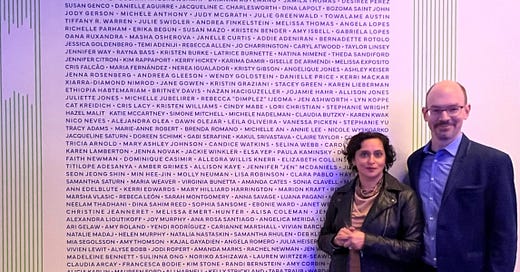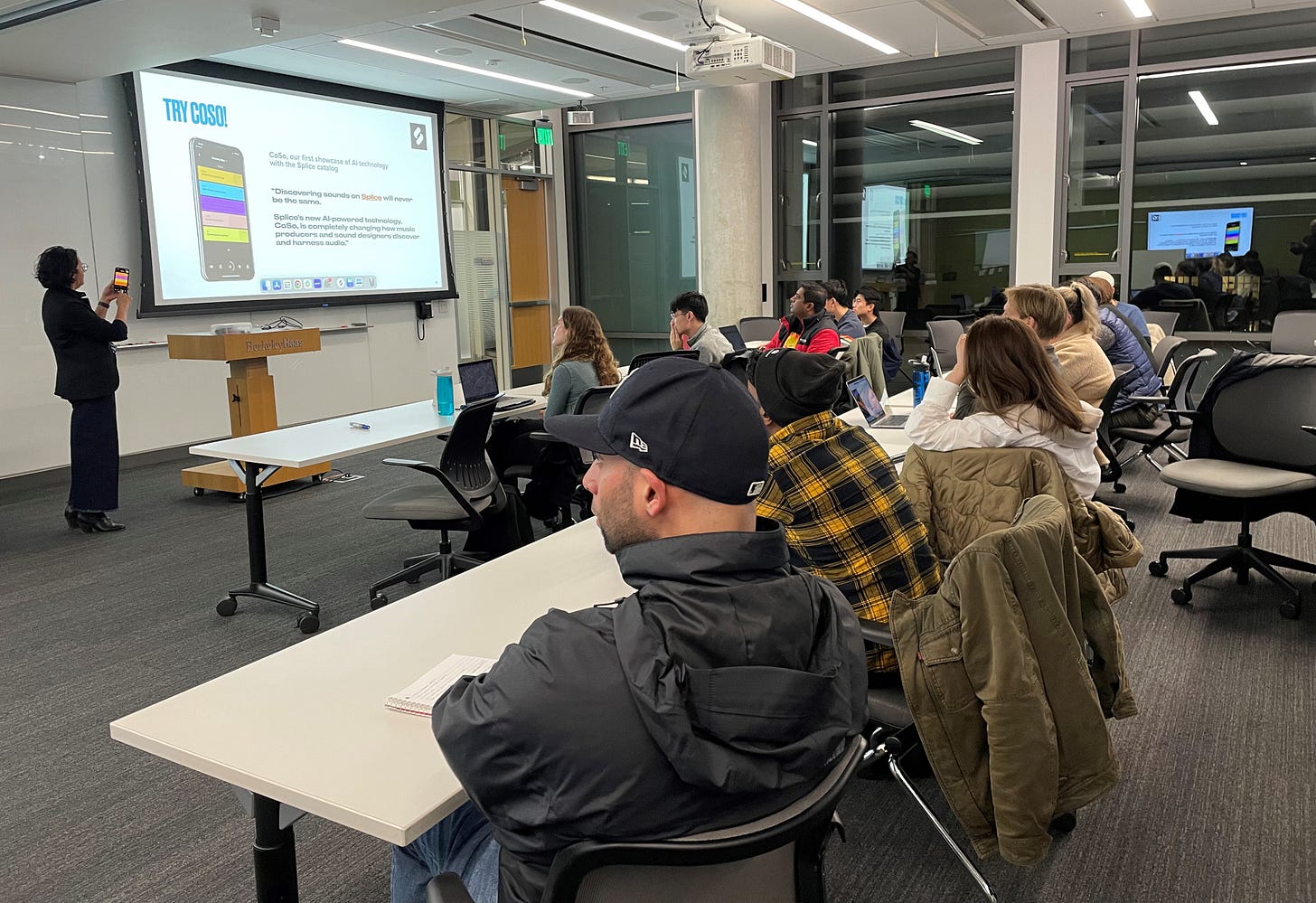Friends,
Another week, another atmospheric river here in California. At least this weekend’s wasn’t torrential like past weeks. Meanwhile, up in the Sierras:


We are now on Week 10 of the semester. Strategy for the Networked Economy (S4NE; nee Corporate Strategy in Telecom and Media) is entering its final week.
We are now 12 years on from Marc Andreessen’s August 2011 editorial, Why Software is Eating the World. In S4NE, I disaggregate that into Software Eats 1.0, 2.0, and 3.0, where 3.0 refers to sharing platforms. We covered this in Class 9.
To provide a timely rejoinder, this year I was delighted to host Joanne Chen with Foundation Capital, for a guest talk on how AI is eating software. Joanne’s remarks highlighted just how much progress has been made…but also how much more headroom there is for software, as a category, to grow.
Last week also was the first week of Spring B, or the second half of the spring semester. I was delighted to meet half of the first-year full-time MBA class, in Strategy. Naturally, we kicked off with the one of the classics - the Coke vs Pepsi (Cola Wars in 2010) case. Looking forward to Week 2 this week.
**
Earlier in the month I was able to parachute into Los Angeles for about 18 hours. I taught Week 7 of S4NE Tuesday night, got the kids out the door for school the following morning, then headed to SFO. Upon arrival into LAX, I was reminded - as always - that while NorCal and SoCal are part of the same state they are different worlds. A feeling that heightened as I arrived in Hollywood in the early afternoon.
The occasion - to proudly escort my (much) better half, Kakul Srivastava, as she received her award as one of the Billboard Top 100 Women in Music.
It was a blast. I got to meet part of the Splice team that makes the magic happen. Best of all, I got to meet some of the audio creators that Splice helps empower. Naturally Kakul put that best.



The following week, Kakul joined Week 8 of Strategy for the Networked Economy to talk about scaling subscription businesses. She drew on her experiences at Adobe (switching from perpetual licenses to subscriptions); Github (switching from unlimited sharing of open source repositories to enterprise seats); and, now, at Splice. The students even got a demo of Splice’s CoSo tool for AI-based audio creation.
Who says class can’t be fun?
***
An Ides of March newsletter without referencing SVB? Much has been said already.
On a personal note, my startup of 8 years - the one that taught so much - did its business with SVB. (And our shutdown at the end in 2010 meant a hurried close to our SVB account.) Having an account with SVB was a rite of passage. At Berkeley SkyDeck, a lot of portfolio companies, some of whom had just cleared the milestone of getting someone to write them a check, had to navigate unexpected waters these past few weeks.
I’ve received updates from a variety of funds and firms, and there was one that, even in the midst of tumult, I thought captured the historic significance of the moment quite eloquently, and I’ve quoted it here.
SVB has been a great partner to our firm, our portfolio companies and to the innovation economy, and the bank’s failure is a sad day for our industry.
I’ll also link to Jay Goldberg’s comment of March 14, which I thought hit the nail on the head:
Many people have pointed to the fact that start-ups should have done a better job of managing their treasury and not relying so heavily on a single bank. Again, this seems logical, but only if you have never tried to open a commercial bank account in this country. Over the past three years we have worked with client companies to open dozens of bank accounts. Viewed from that experience, there are some fairly solid reasons that we all bank with SVB. Put simply, the major US commercial banks have no interest in working with start-ups. The majority of this business is just basic banking, no fancy structured products or lucrative loans needed. So no fees, and so no interest from the big banks.
There was great value to the local ecosystem in a bank that really was a regional community bank, and could deal with customers that didn’t have SSNs, or were a standard deviation (or two) from the norm, or, or, or. And that is where SVB will be missed.
**
In this APEC year in San Francisco I am delighted to join the Berkeley APEC Study Center as Senior Research Affiliate. Many thanks to Vinod Aggarwal for the kind invitation. More to come on this topic.
Onward and upward!
Jon






